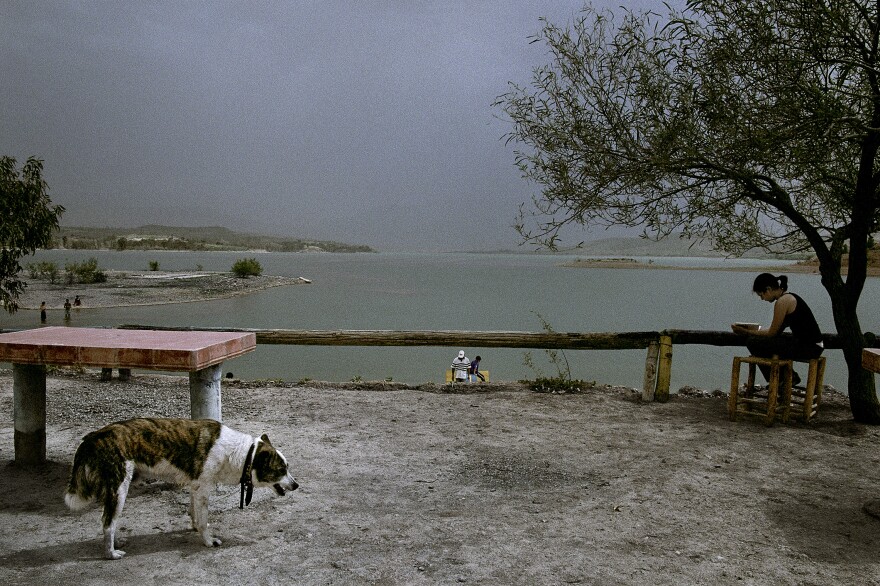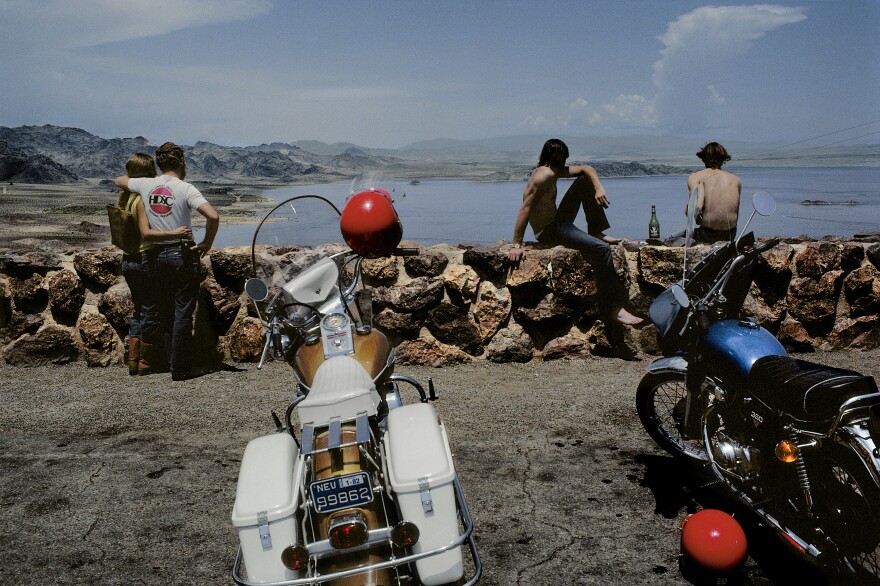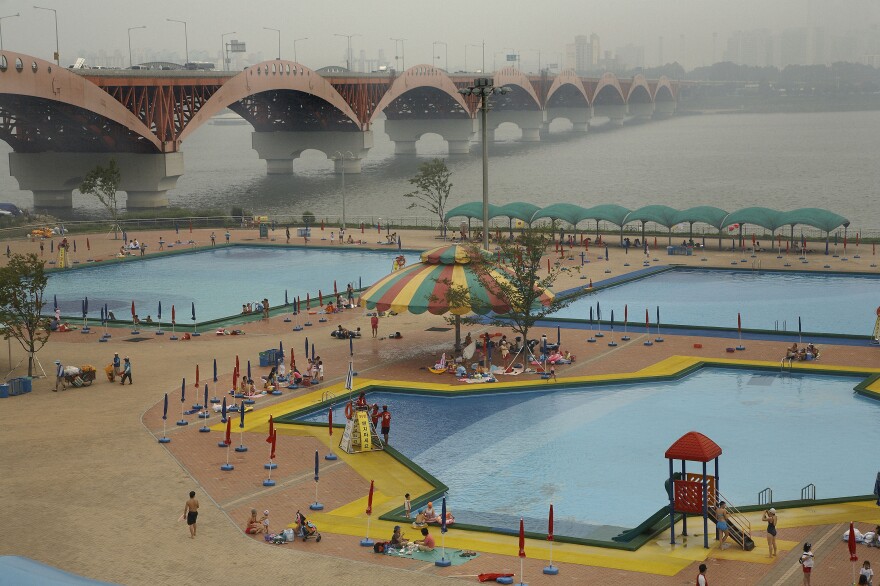In the foreword to Harry Gruyaert's photography book Edges, sculptor Richard Nonas sums up the work of his good friend.
"Harry Gruyaert ignores the grammar of center and edge, finds the blurred boundaries of overlapping life, the places where one thing has begun to be another thing," Nonas writes. "He photographs processes, not results. He photographs moments caught in transition."

Edges captures the places where humans interact with the natural borders of our world: bodies of water. Gruyaert, 78, has spent his entire career as a photographer and cinematographer, but this book came together by happenstance. When sorting through his images, Gruyaert realized that these landscapes at the edge of humanity had drawn him in, time and time again.
"I had so many pictures of seasides and didn't even know. Places attract me. I don't have a concept," he said. "Things attract me, and I attract things as well."



Gruyaert managed to document these spaces through 44 years and 21 different countries. But becoming a distinct photographer with a broad depth of work began with his defiance of his father's wishes.
Gruyaert was born in Antwerp, Belgium in 1941 to a Catholic family. Though his father was a photographer himself, he disapproved of his son pursuing the career. Nevertheless, Gruyaert felt he hardly had a choice in the matter.
"I never thought about anything else," Gruyaert said. "I always knew that I wanted to do photography. There was never anything else."


After leaving home, Gruyaert went on to study at the School of Photography and Cinematography in Brussels from 1959-1962. He moved to Paris and then later to London, working as a freelance photographer. He also photographed distorted TV images to comment on the medium — how it was changing the way people experienced news events.
After this, he decided to return to Belgium and begin a project documenting it, beginning in black and white in 1973, shifting to color as his feelings changed about his home country, and wrapping up in 1980. During this time in Belgium, Gruyaert produced several photographs that ended up in Edges.
A year later, Gruyaert joined Magnum Photos, a photographic cooperative with a documentary and journalism bent. Some of his new colleagues were skeptical of him due to his fixation on color.
This obsession with color has become his legacy. Gruyaert is described as "a pioneer in European color photography" in a recent documentary about the photographer; a colleague at Magnum, Raymond Depardon, said in the documentary that Gruyaert "thinks and frames in color."
NPR asked Gruyaert which photo in Edges has a particularly special meaning to him.
"That picture from Belgium with the yellow columns and red chairs," Gruyaert said. "I don't understand it myself, what is where. It was a strange miracle."

Gruyaert says he has a desire to discover these "miracle" moments of beauty. To hear him tell it, he thinks about his photography as being in the right place at the right time.
"To be just where you need to be, at the right time, with the right light. ... The movements of people, which make the image strong. ... And when things get into place, all of a sudden," Gruyaert said in the documentary. "Wow, it's a very physical pleasure."

It makes Edges a glorious collection of work. Different scenes and coastal hues from around the globe grace each page, yet each photo gives off a calming and inquisitive aura. Always, Gruyaert seems to be looking for colorful moments.



Gruyaert currently lives in Paris, where he is working on a book about India and another called Irish Summers set in the 1980s.
You can find Gruyaert on Instagram @harrygruyaert.
Copyright 2024 NPR. To see more, visit https://www.npr.org.









